Organic hot cross buns are the biggest challenge right now for Jana Satchi, co-founder of London's Farmers' City Market. "The cross is the difficulty," he says. "When you use organic ingredients, it sinks into the bun."
But after a year of searching, Satchi has found a baker who can manipulate organic flour, water and sugar to create buns with the crosses perfectly intact. It is this obsession with high-quality food that led the former M&S clothing supplier to set up his 12,000 sq ft store in Hampton Hill with business partner and former food and wine merchandiser Stephen Wilkinson in December 2006.
Farmers' City Market is one of a new breed of retailer, targeting consumers who want to shop at local, premium organic stores. Fresh & Wild has already been gobbled up by US plc Whole Foods for £21m in 2004. Planet Organic now has three stores and plans 13 more. And still they come. "There is a huge market for this food," says Satchi, who plans to expand nationwide. "Farmers' markets prove it."
IGD predicts the market for organic, premium, specialist, local and fair trade food will grow 40% by 2012 to £20.38bn - up from £14.55bn in 2007. Retailers specialising in a premium offer, rather than offering it as a sideline, are looking to profit from the trend.
Until now, largely London consumers have benefited from these organic high street stores, but retailers are getting wise to the potential market outside the M25.
As Nature Intended, an organic chain set up by Iceland founder Malcolm Walker in 2000, has just opened its first store in Hale, Manchester. MD Caroline Gooding, Walker's daughter, says because As Nature Intended is based in London, securing specialist supplies has been an issue. "Getting our lines to Manchester is difficult because we can't find many local suppliers. We haven't found a local bakery, for example," she explains. This may affect expansion.
"It is hard to find new stores as 25% of our business is natural remedies and we have complex supply chains. We've opened one store a year for the past three years but stores must tick the right boxes."
Another premium retailer succeeding outside London is Berits & Brown, which specialises in hampers, wines and deli food. Following the success of its first store in Stirlingshire, the company has embarked on an ambitious franchising operation. Three franchises are now trading in Scotland and the north west, with a further two finalising contracts.
The experience of Whole Foods Market in the States suggests businesses offering a premium product in a luxurious environment are scaleable. Indeed, The Grocer recently learnt Whole Foods Market is to open its second store in Birmingham next year.
But Keith Bird, who opened The Natural Kitchen on Marylebone High Street last year, believes the provinces aren't ready to embrace the independent high-end organic grocers yet. The spread of premium retailers will be a cultural development as well as economic argues Bird, a former Asda business strategy manager, who set the store up with ex-Asda regional manager Martin O'Connor. "London shoppers are more open to these stores," he says. "But if the demographics are right the idea will develop in other cities, as Fresh & Wild did in Bristol and As Nature Intended has in Manchester.
"Look at the supermarkets. Asda grew from Leeds, Morrisons from Yorkshire and Tesco from the south, spreading out from their heartlands. We are like any other business that wants to develop, but one of the reasons we opened in London was the wealth here.
"We would love to make the brands accessible to as many people as possible. But are we likely to open our next store in a tough part of Leeds? Probably not."
Initial success in the capital will go a long way to persuade investors of expansion. Financiers will be aware of the growth rates of such businesses so far. As Nature Intended grew from two stores to four between 2006 and 2007. Its sales in 2007 were up 64% on 2006. Gooding says the business is not seeking backers yet. " We're profitable and enjoying being able to make decisions without consulting shareholders."
Elsewhere the story is different. "We are talking to some big financial backers," says Satchi at Farmers' City Market, in the belief the model can be rolled out. "There is a trade-off as it would involve surrendering an element of equity."
Bird accepted the backing from property investor Elliott Bernerd, who owns Camden market and developed White City, when he opened The Natural Kitchen. But one City source says new retailers may find it difficult getting City investors to part with their cash.
"We are aware of the premium organic retailers but they're still tiny, while sentiment towards the retail sector is cautious. Anyone looking to take business away from the multiples is brave, especially while the supermarkets are succeeding with their own locally sourced premium ranges."
This didn't stop Abel & Cole being valued at an estimated £40m, but it won backing from private equity, says our source, because it doesn't have shops that incur rent and other costs. "We watch Whole Foods Market in Kensington with interest but it has its problems - not least whether consumers will pay such high premiums."
But premium retailers say their business models allow them to capitalise on profits and reduce unnecessary costs. The Natural Kitchen and Farmers' City Market have restaurants, which brings in significant revenue and solves the costly problem of selling fresh produce on a small scale. "Our restaurant eliminates nearly all wastage, using up all the food we don't sell," says Wilkinson.
IGD senior analyst Gavin Rothwell sees a bright future for these stores, arguing they're affecting the way the multiples operate. "Bearing in mind the small scale of premium retailers compared with the multiples, the overall impact on sales is modest. But they punch above their weight in driving innovation."
To prove the point, the local Waitrose revamped its store after The Natural Kitchen opened and the Tesco Express opposite Farmers' City Market started stocking a more extensive Finest range after it opened. "The market for premium and organic products is growing," says Rothwell, "meaning plenty of room for small retailers to prosper." nOrganic growth
Planet Organic
Opened: 1995
Founder: Renée Elliott
Stores: 3. Fulham, Torrington Place, Westbourne Grove. Two more opening this year and plans announced for 13 over next few years
As Nature Intended
Opened: 2000
Founder: Malcolm Walker, but the company is run by his daughter Caroline Gooding
Stores: 4. Chiswick, Balham, Ealing and Hale in Manchester
Daylesford Organics
Opened: 2003
Founder: Lady Bamford (her family is the B in JCB)
Stores: 2. Daylesford, Gloucestershire and Pimlico Road, London, plus six concessions in stores such as Selfridges
Berits & Brown
Opened: 2004
Founders: Sue Berits and
Peter Brown
Stores: 4. Kippen, Glasgow, Poulton-le-fylde and Marlborough
Farmers' City Market
Opened: 2006
Founders: Jana Satchi and
Stephen Wilkinson
Stores: 1. Hampton Hill, Middlesex
The Natural Kitchen
Opened: 2007
Founder: Keith Bird and
Martin O'Connor
Stores: 1. Marylebone High Street







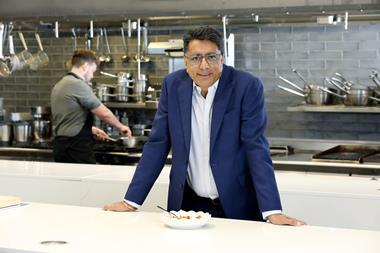

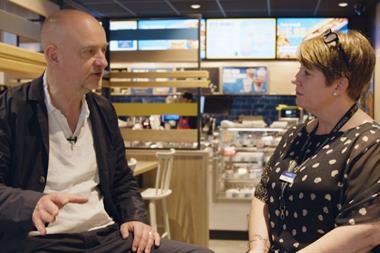
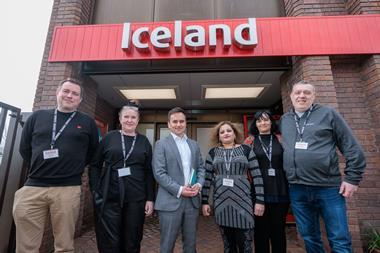
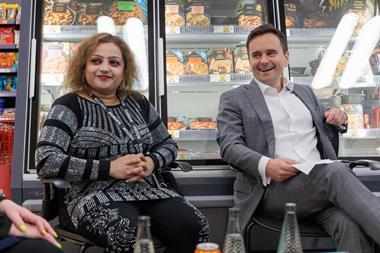



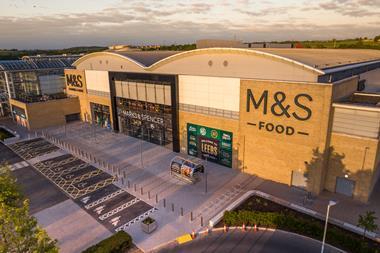

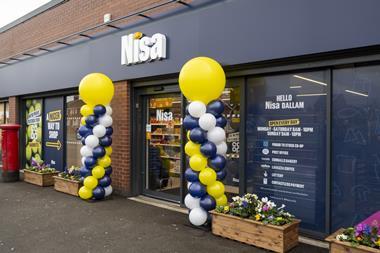

No comments yet